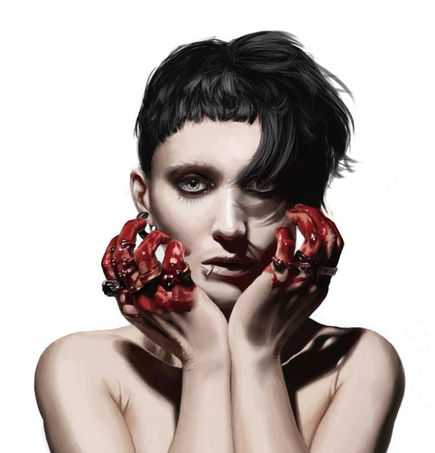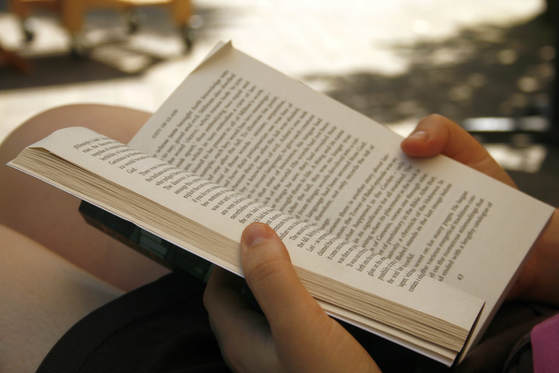|
by Kaitlyn Gaffney I am an unabashed fantasy nerd. I was raised on Harry Potter, YA vampire novels, Brandon Sanderson, and Dungeons & Dragons. I still play World of Warcraft and I world-build for fun, but my entire life, I have heard fantasy--and genre fiction in general--referred to as a “guilty pleasure.” With the explosion of YA and genre fiction in the past decade or so, the literary world has seen many arguments for the distinction between genre fiction and literary fiction and, in many cases, for literary fiction’s superiority. Arthur Krystal, in his piece “Easy Writers” for The New Yorker, promotes this hierarchy on the basis of genre fiction’s disproportionate focus on archetypal plot and inherent escapism. He describes genre fiction as “a narrative cocktail that helps us temporarily forget the narratives of our own humdrum lives.” I read this article a few months ago and felt the familiar sting of shame for my love of fantasy fiction. After a while, however, I started to wonder—why should I feel guilty for devouring the works of Veronica Roth and Suzanne Collins? Why should anything that brings me pleasure in a safe, genuine, and productive way be considered shameful? I then found a response to Krystal’s article for Time entitled “Literary Revolution in the Supermarket Aisle: Genre Fiction Is Disruptive Technology” by Lev Grossman, which articulated much of how I was feeling. Much like Grossman, I am not going to try and examine the hierarchy of fiction genres, as I don’t feel informatively equipped for that, but I would like to argue that branding genre fiction as “guilty pleasure” or “escape literature” is both unfair and damaging to those who enjoy reading it. In many cases, as I have seen among my peers and my generation at large, this connotation has discouraged many from the hobby of reading entirely.
Not only have I enjoyed reading this series a couple times, but I have learned from it. I have found enormous inspiration in the girl with the dragon tattoo herself, Lisbeth Salander, and her unyielding tendency to protect and fight for herself. The police report-esque style (potentially purposeful, given the genre) has inspired me, ever verbose and overcompensating, to work on being succinct in writing; as Grossman states about Agatha Christie’s use of language, “to create that effect of artlessness requires an extraordinary amount of art. Smoothness and clarity are not things that occur naturally in prose, they require a great deal of grinding and polishing.” Additionally, perhaps at the forefront of the narrative, we glean a profound message about the injustices of institutionalized prejudices and the multifaceted harm they can cause. The direct translation of the first book’s title from Swedish into English is “Men Who Hate Women,” and by writing equally from the perspective of both the heros and the villains, Larsson brutally explores the misogyny, toxic masculinity, homophobia, and fetishization at the root of sexual violence against women. And this book series, for all of the positive and motivating impacts that it has had on me, is considered genre fiction, and thus is looked down upon. “You don’t read [genre fiction] to escape your problems, you read it to find a new way to come to terms with them." —Lev Grossman Even further, I would argue this novel series entirely evades the escapism theory that is so often used as a lens through which to critique genre fiction. Of course, there are elements of excitement and intrigue in the plot to attract a reader, but the subject matter is tough. I would give it a trigger warning. Even still, one quote from Grossman’s piece truly stood out to me: “You don’t read [genre fiction] to escape your problems, you read it to find a new way to come to terms with them.” This series might offer a sense of catharsis for readers with similar traumas or for allies like me, ever enraged by the injustice of the patriarchy and the sexual violence it both allows and encourages. We see in the Millennium Trilogy a world where justice (spoiler alert) wins out—but we also see the long, arduous, and often dangerous path to claiming that victory. I understand that this is only one example of genre fiction, and, in my opinion, of good genre fiction. Grossman does recognize the existence of “shitty genre fiction,” which is where he believes much of Krystal’s critique is directed. But everyone who enjoys genre fiction, from adolescents to adults with corporate jobs, has a series that is to them what Millennium is to me. And I detest the notion that we should be made to feel guilty for enjoying reading. Much of literature that brands genre fiction as a “guilty pleasure” operates on the idea that one’s preferred genre is a sign of status or morality. As Grossman purports, “Maybe it’s the last vestiges of our Puritan heritage: if it’s not hard work, it’s sinful.” This elitist view is what often dissuades people from reading independently or as a hobby by making once-readers feel as though they are inferior for liking genre fiction, and to be a true consumer of literary fiction is to be Good and Right and Intellectual--and it’s also completely unattainable for us genre fiction fans because we’re so incapable of it. I use blatant hyperbole here to try and express the dire nature of our current societal situation regarding reading. In this video, Cody Ko, a YouTuber popular among today’s youth, claims that he doesn’t believe “people under 40 read.” This is heartbreaking to those of us for whom reading has done so much, but is unfortunately a true reflection of how young people view reading. I assume, sadly, that many of these young people were discouraged from reading because of the stigmas surrounding their preferred genres.
There are massive communities of readers who enjoy genre fiction. Let them. Let them devour their romance novels, their mysteries, their sprawling fantasy worlds filled with heroic, antiquitous lore. I refuse to feel ashamed for avidly reading the genres that excite me, enrapture me, and shape me. Reading, I have found, is one of the most creative, productive, community-oriented activities we have to enjoy, and I argue that it is shameful to judge or stigmatize that which is important to anyone.
1 Comment
|
Archives
July 2024
Categories
All
|
|
Glassworks is a publication of Rowan University's Master of Arts in Writing 260 Victoria Street • Glassboro, New Jersey 08028 [email protected] |
All Content on this Site (c) 2024 Glassworks
|




 RSS Feed
RSS Feed
